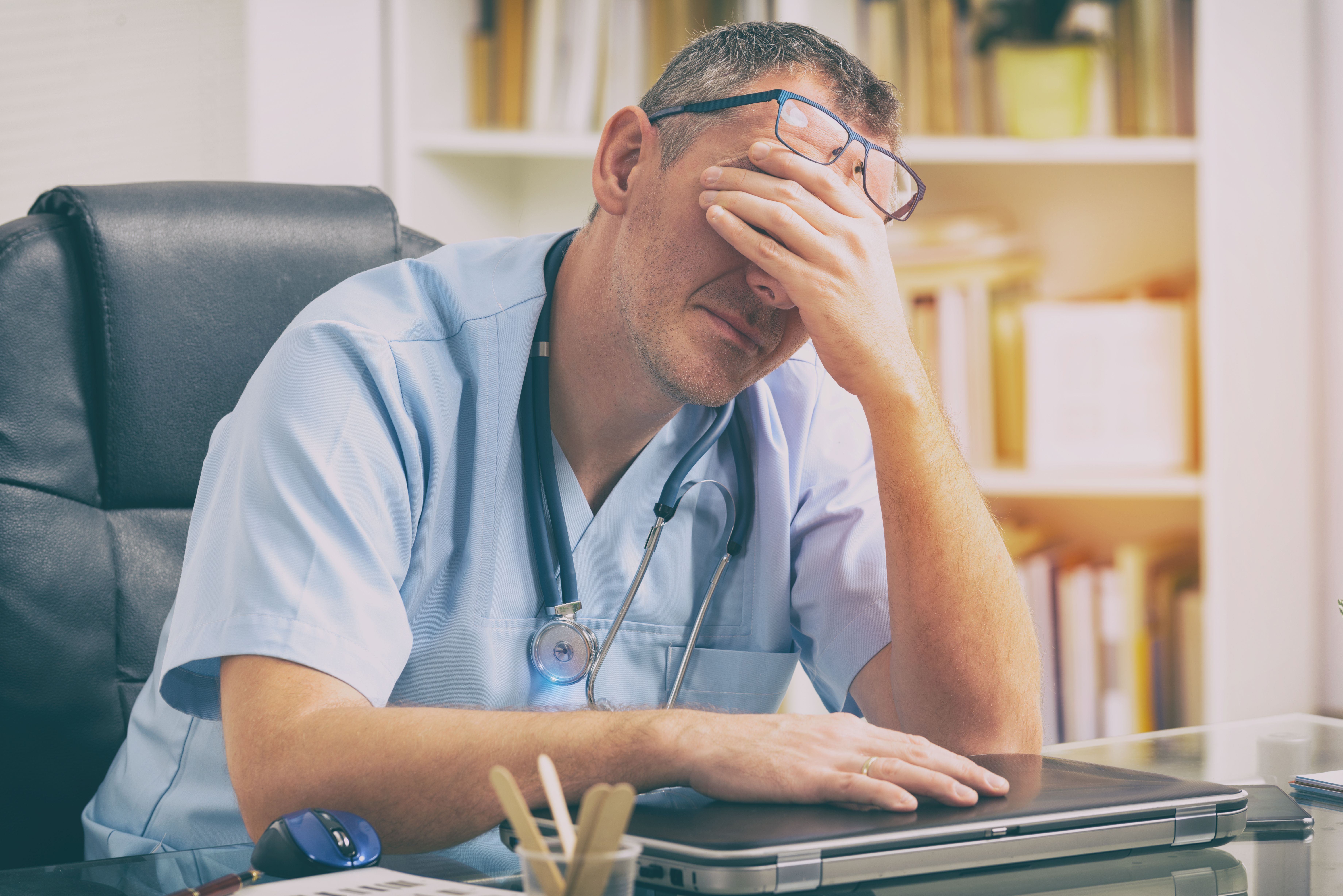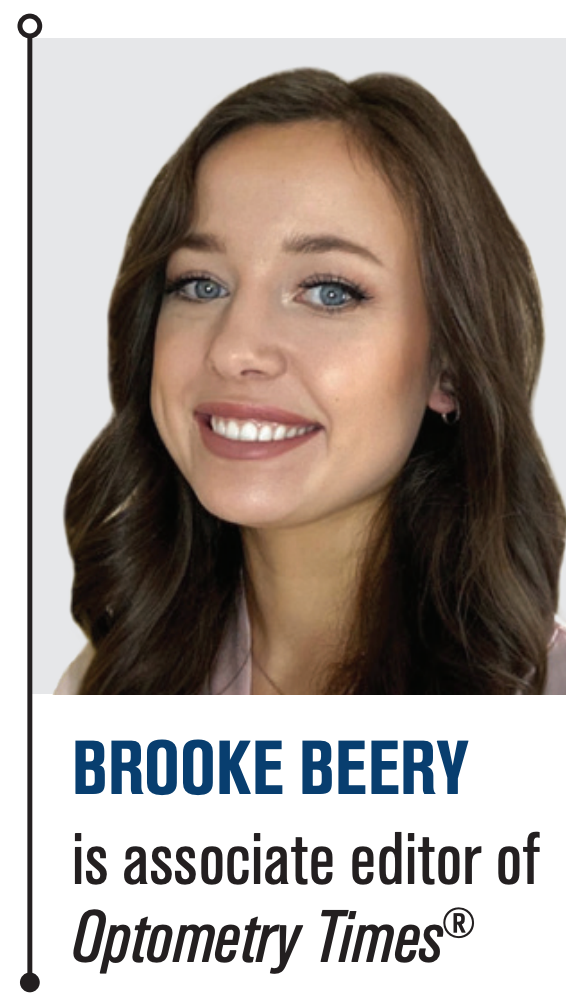Sleep-related impairment prevalent in physicians
Female trainees specializing in surgery, emergency medicine, and anesthesiology were most affected by sleep-related impairment.


Sleep-related impairment was prevalent in a new study’s sample of more than 11,000 attending and trainee physicians. When physicians were not able to get enough sleep, there was an increase in burnout and a decrease in professional fulfillment.1
Excessive, often unpredictable work hours are commonplace in many doctors’ schedules, and sleep-related impairment can become an occupational hazard.2-4 The results of multiple different studies show that inadequate sleep has significant health and cognitive performance consequences.5-8
Background
When a doctor doesn’t get enough sleep, he loses the ability to identify patient emotions, explore the reasons for those emotions, and validate emotions, which hinders interpersonal communication.8-11 Sleep deprivation disrupts cognitive processing and connectivity between amygdala anterior cingulate and media prefrontal cortex, resulting in emotional dysregulation.12-15 Furthermore, a physician’s ability to maintain attention decreased in tandem with sleep loss.16
Related: How to improve telehealth
Most doctors are intuitively aware of the link between sleep-related impairment and burnout among physicians, but few studies have actually evaluated it.17,18This study assessed the association between sleep-related impairment and occupational wellness indicators, including work exhaustion, interpersonal disengagement, overall burnout, and professional fulfillment.
The study used a large sample of physicians in postgraduate training as well as attending physicians at academic-affiliated medical centers to assess the associations of sleep-related impairment and burnout with self-reported data. Additionally, it categorized results by medical specialty and between attending physicians and postgraduate medical trainees in the same specialty.1
Measures
The study measured sleep-related impairment by utilizing the Patient-Reported Outcomes Measurement Information System (PROMIS) 8-item scale that assesses tiredness, alertness, sleepiness, and functional deficits related to inadequate sleep. Researchers categorized scores from 8 to 11 as negligible levels of sleep-related impairment, 12 to 15 as low, 16 to 21 as high, and 22 to 40 as very high.
Related: Possible endophthalmitis and COVID-19 link found
Results
The mean sleep-related impairment scale score in physicians was 16.9. Among trainee physicians, it was 20.7. Variations in sleep-related impairment were seen among different specialties, genders, and training status, with female trainees specializing in surgery, emergency medicine, and anesthesiology most affected.1
Emergency medicine specialists had the highest sleep-related impairment scores among attending physicians, and surgical specialists had the lowest.
When comparing attending surgical specialists scores with the national PROMIS data bank’s median of 16, results showed a lower than average mean of sleep-related impairment.1 In contrast, trainee surgical specialists had the highest sleep-related impairment of the 12 specialty categories of postgraduate training specialties.1
Related: Avoid pain relievers and alcohol before, after COVID jab
OD weighs in
Optometry Times® asked Editorial Advisory Board member Michael BrownOD, MHS-CL, FAAO, to weigh in on the study’s results. Dr. Brown says the study shows a strong association between sleep deprivation and burnout, but the authors also point out that they did not assess for a cause-and-effect relationship.
“I know the times during my career when I have struggled most with burnout, I didn't sleep long or well, but I felt the insomnia, poor quality, and early morning waking were more a symptom of burnout than the cause,” says Dr. Brown. “Once the causes were addressed, my sleep pattern normalized.”
Dr. Brown says he averages only about 6 hours of sleep each night but doesn’t suffer any ill effects. His doctor isn’t concerned as long as he stays healthy and happy and functions well.
“I hope researchers are looking at why some people need less sleep and some more and also if there is a health benefit to being in bed and relaxed for the “recommended 8 hours” rather than asleep the whole time.”
References
1. Trockel MT, Menon NK, Rowe SG, Stewart MT, Smith R, Lu M, et al. Assessment of Physician Sleep and Wellness, Burnout, and Clinically Significant Medical Errors. JAMA Netw Open. 2020;3(12):e2028111.
2. Baldwin DC Jr, Daugherty SR, Tsai R, Scotti MJ Jr. A national survey of residents’ self-reported work hours: thinking beyond specialty. Acad Med. 2003;78(11):1154-1163.
3. Shanafelt TD, Hasan O, Dyrbye LN, Sinsky C, Satele D, Sloan J, et al. Changes in Burnout and Satisfaction With Work-Life Balance in Physicians and the General US Working Population Between 2011 and 2014. Mayo Clin Proc. 2015;90(12):1600-13.
4. Bilimoria KY, Chung JW, Hedges LV, Dahlke AR, Love R, Cohen ME, et al. National Cluster-Randomized Trial of Duty-Hour Flexibility in Surgical Training. N Engl J Med. 2016;374(8):713-27.
5. Van Dongen HP, Baynard MD, Maislin G, Dinges DF. Systematic interindividual differences in neurobehavioral impairment from sleep loss: evidence of trait-like differential vulnerability. Sleep. 2004 1;27(3):423-33.
6. Kuna ST, Maislin G, Pack FM, Staley B, Hachadoorian R, Coccaro EF, et al. Heritability of performance deficit accumulation during acute sleep deprivation in twins. Sleep. 2012 Sep 1;35(9):1223-33.
7. Rupp TL, Wesensten NJ, BalkinTJ. Trait-like vulnerability to total and partial sleep loss. Sleep. 2012;35(8):1163-1172.
8. Krause AJ, Simon EB, Mander BA, et al. The sleep-deprived human brain. Nat Rev Neurosci. 2017;18(7):404-418.
9. Goldstein AN, Walker MP. The role of sleep in emotional brain function. Annu Rev Clin Psychol. 2014;10:679-708.
10. van der Helm E, Gujar N, Walker MP. Sleep deprivation impairs the accurate recognition of human emotions. Sleep. 2010;33(3):335-342.
11. Goldstein-Piekarski AN, Greer SM, Saletin JM, Walker MP. Sleep deprivation impairs the human central and peripheral nervous system discrimination of social threat. J Neurosci. 2015;35(28):10135-10145.
12. Yoo SS, Gujar N, Hu P, Jolesz FA, Walker MP. The human emotional brain without sleep: a prefrontal amygdala disconnect.Curr Biol. 2007;17(20):R877-R878.
13. Motomura Y, Kitamura S, Oba K, et al. Sleep debt elicits negative emotional reaction through diminished amygdala-anterior cingulate functional connectivity. PLoS One. 2013;8(2):e56578.
14. Prather AA, Bogdan R, Hariri AR. Impact of sleep quality on amygdala reactivity, negative affect, and perceived stress.Psychosom Med. 2013;75(4):350-358.
15. Killgore WD. Self-reported sleep correlates with prefrontal-amygdala functional connectivity and emotional functioning.Sleep. 2013;36(11):1597-1608.
16. Van Dongen HPA, Maislin G, Mullington JM, Dinges DF. The cumulative cost of additional wakefulness: dose-response effects on neurobehavioral functions and sleep physiology from chronic sleep restriction and total sleep deprivation. Sleep. 2003;26(2):117-126.
17. Vela-Bueno A, Moreno-Jiménez B, Rodríguez-Muñoz A, et al. Insomnia and sleep quality among primary care physicians with low and high burnout levels. J Psychosom Res. 2008;64(4):435-442.
18. Trockel M, Bohman B, Lesure E, et al. A brief instrument to assess both burnout and professional fulfillment in physicians: reliability and validity, including correlation with self-reported medical errors, in a sample of resident and practicing physicians.Acad Psychiatry. 2018;42(1):11-24.
Newsletter
Want more insights like this? Subscribe to Optometry Times and get clinical pearls and practice tips delivered straight to your inbox.
2 Commerce Drive
Cranbury, NJ 08512
All rights reserved.